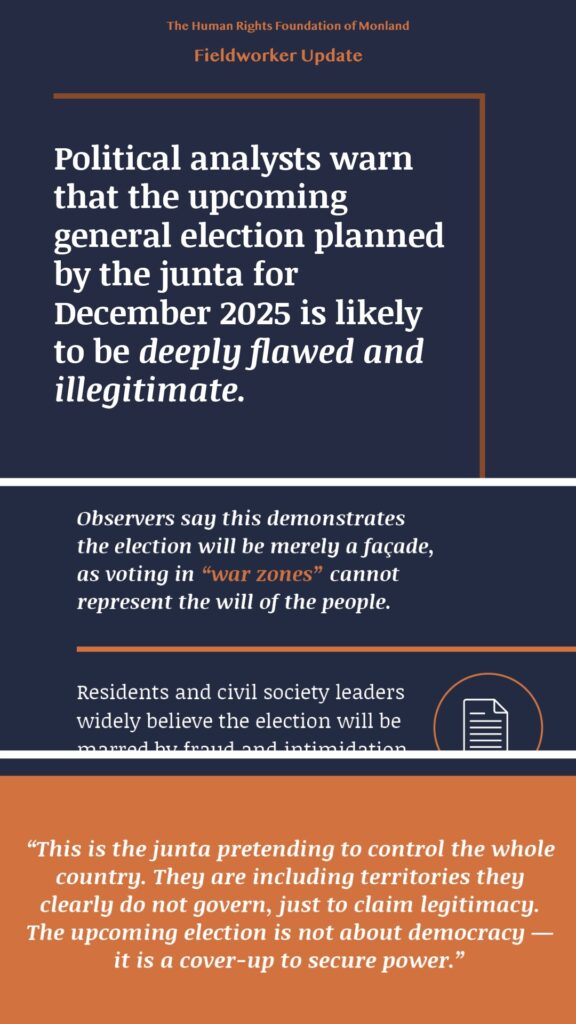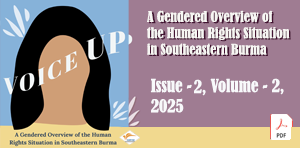Junta’s Sham Election: Voting Declared Even in War Zones
August 18, 2025
HURFOM: Despite losing control of vast territories to Ethnic Resistance Organizations (EROs) and the National Unity Government (NUG), the junta-appointed Union Election Commission (UEC) announced on 15 August that all 330 townships across the country will be designated as constituencies — including areas where fighting is ongoing and the military has no authority.
The decision includes over 90 townships in Rakhine, Shan, Kachin, Chin, Karenni, and Karen States, as well as Sagaing, Magway, and Mandalay Regions — areas where junta forces have either been expelled or face heavy resistance. Observers say this proves the election will be nothing more than a façade, as voting in “war zones” cannot reflect the will of the people.
“This is the junta pretending to control the whole country. They are including territories they clearly do not govern, just to claim legitimacy. The upcoming election is not about democracy — it is a cover-up to secure power,” explained a Mon political researcher. Analysts also noted that under pressure from China, the Junta is attempting to organize voting nationwide, even while launching brutal offensives to retake lost ground.
Residents and civil society leaders widely believe the election will be marred by fraud and intimidation. Many see it as the regime’s largest attempt at manipulation since the coup. The system being imposed mixes the First-Past-the-Post (FPTP) and Proportional Representation (PR) methods.
However, the details of how PR votes will be calculated remain unclear, leaving political parties uncertain and distrustful of the process.
Further complicating matters, since April 30, 2022, the Junta has restructured and expanded district boundaries through orders issued by the Ministry of Home Affairs (orders No. 319/2022 – 333/2022). As a result, the number of townships has now grown to 354 and the number of districts to 129. Analysts believe this was part of the military regime’s preparations , planned three years in advance, for the upcoming election.
Opposition from EROs and resistance forces remains strong. Groups in Karen, Karenni, Kachin, Rakhine, and other areas have stated they will not allow junta-controlled elections to take place in their territories. “How can you hold voting in active conflict zones? This is absurd,” said an ERO member based in Dawei.
Meanwhile, under the Junta’s election law, political parties are forced to contest in at least half of the constituencies nationwide or risk deregistration. This condition further disadvantages smaller or ethnic-based parties already struggling under repression and displacement.
For civilians, the reality is grim. Communities already traumatized by war now face the added fear of arbitrary arrests, forced recruitment, and a sham election that strips them of their political voice. Across Mon State and elsewhere, ordinary people say what they long for is not an election orchestrated by the Junta, but genuine peace and the end of military dictatorship.
As junta leader Min Aung Hlaing declared he will consider the election legitimate if his side wins more than 50% of the vote, residents fear the outcome has already been predetermined.




















































